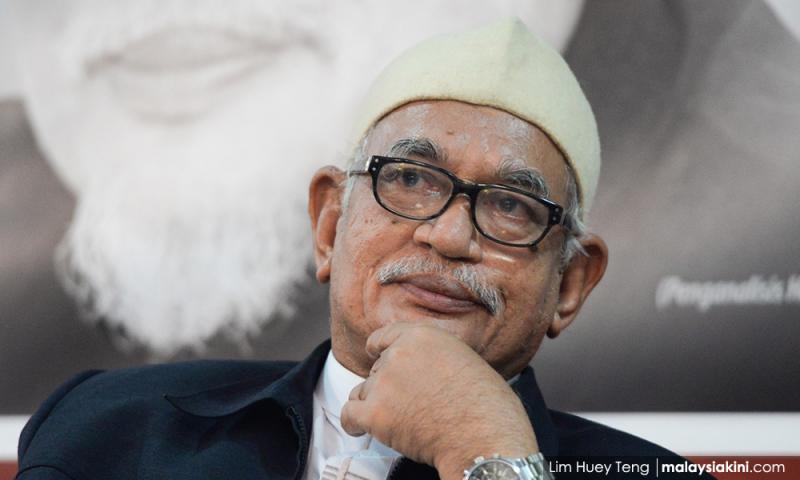LETTER | Corruption is colour-blind, Hadi
LETTER | PAS president Abdul Hadi Awang, in his recent public statement, claims that the non-Malays are to blame for the rise of corruption in recent times, implying that they are responsible for making Malay political leaders and civil servants becoming more and more corrupt.
The PAS leader, who believes that his party should be in the seat of power in Putrajaya, is being irresponsible to his own party members for making corruption into a racial issue because that will not go well with voters of all races.
Indeed, his statement has caused distress among non-Malays that they are being made the scapegoat for the institutional weaknesses that make it possible for corruption to spread like cancer.
A more responsible way is to take a non-racial approach by recognising the truth, whether in Malaysia or in any country in any part of the world, that when bureaucracy becomes too difficult to get things done, corruption starts to rear its ugly head.
In Malaysia, it used to take the whole morning and sometimes the whole day to get the renewal of permits, licences, visas, passports, etc done. In such a situation, there is a strong tendency for those running their business to use tips or duit kopi to get faster service so that the applicants can get back to work.
This problem of petty corruption at counter services was very much reduced after the government made administrative improvements to modernise departmental operations by using the latest technology for fast communication and processing.
While petty corruption has gone down because of greater administrative efficiency, high-level corruption has been increasing at an alarming rate, mainly because of the need for political funds to build a war chest for elections and also because of personal greed among politicians and civil servants. The spread of high-level corruption has no racial divide between givers and takers.
Divisional party leaders of the political party in power are often at the front line of high-level corruption. They make themselves available as lobbyists to obtain approvals at the ministerial level.
All this is possible because of the lack of transparency and accountability in the awarding of projects involving government purchases, procurements, and contracts.
When ministers show they have the power to make their own decisions, the political lobbyists will know who to bribe to get the approvals. And the best lobbyists are those who are family friends and relatives of those in power.
This “I scratch your back, you scratch my back” syndrome applies to all races because money knows no race.
As the political leader of a party that rules Kelantan, Hadi should know about this syndrome because when the illegal logging of forest reserves became a public issue in the state, the people suspected there was bribery and corruption behind the destruction of the state’s natural resources.
There is also the cross-border smuggling along the Thai border that raises the question of whether PAS leaders are tolerating the corruption.
The attempt by the PAS leader to blame non-Malays shows his lack of knowledge about the root causes of corruption. He ignores the truth that the front-liners who act as lobbyists for business owners to reach to the top are members of the ruling party, both at the federal and state level.
The lobbyists go for whoever can offer them the best deal such as a success fee or a partnership in the non-Malay company. It is therefore not right to blame the non-Malays as the big players in the corruption scandals because as the saying goes, it takes two to tango.
Some writers on the Malaysian political economy refer to political lobbyists as “rent collectors”. They do not do any real work except to knock on the doors of ministers and get paid by their business principals for making the introductions.
Foreign investors who are not familiar with Malaysian politics and the local decision-making process also make use of the political lobbyists for high-level contacts. Foreigners know that to get government business, like the LCS naval ships, they have to get the political lobbyists to do what is necessary including giving “incentive” money to open the doors for their clients at the highest levels.
With so many “rent collectors” to pay, the costs of corruption make government expenditures unnecessarily high for the country. The PAS president should have mentioned how money is used to make the political lobby job so attractive to party officials. They are the real shakers and movers of corruption at the highest levels of government.
The views expressed here are those of the author/contributor and do not necessarily represent the views of Malaysiakini.
RM12.50 / month
- Unlimited access to award-winning journalism
- Comment and share your opinions on all our articles
- Gift interesting stories to your friends
- Tax deductable
